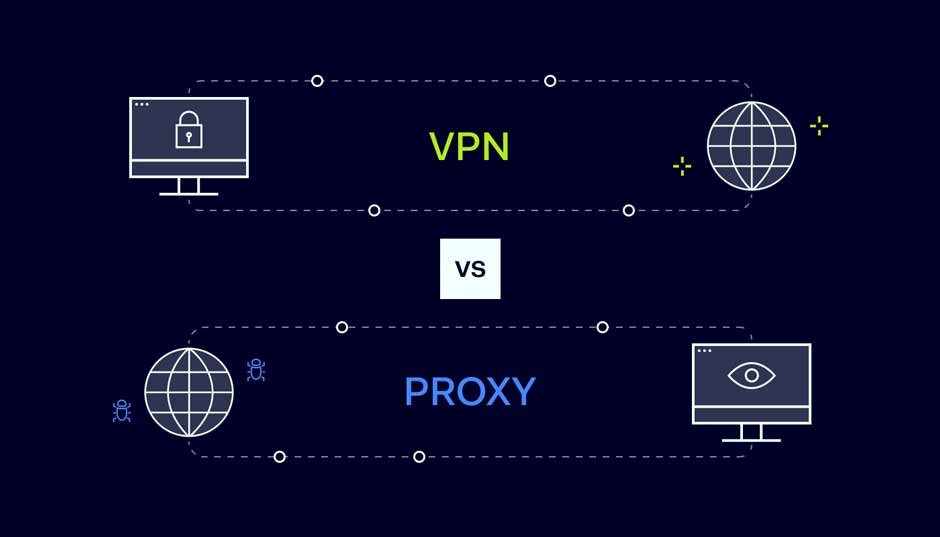VPN, Proxy, and Tor are three security protocols that help you stay safe online in different ways. Although each tool works slightly differently, they all have a common goal – to hide the user’s online activity and provide him with a layer of protection.
What is the difference between VPN, proxy, and Tor, and which should you choose?
VPN
With the help of a Chrome, Safari, or Firefox VPN (Virtual Private Network), you can change your IP address and use geo-blocked resources. By using a VPN, you can easily become “invisible” online and, as a result, protect yourself and your data from hackers. All information sent between the user and the browser falls into a kind of closed tunnel that encrypts all activity from anyone who would like to access it.
VPN is a perfect solution for people who often use public Wi-Fi, want to take care of their privacy, and are looking for materials unavailable to users in their home country. It is also simple to use. You can install it on your device or run a plug-in in your browser, such as Firefox VPN.
Some VPNs combine all three tools discussed here – they have proxy extensions for popular browsers, allow you to use the network via Tor, and offer all the features of a standard VPN with its speed and stability.
Benefits of a VPN:
- more stable than Proxy;
- faster than Tor.
Cons of VPNs:
- additional VPN services or a high-speed connection may be more expensive.
Proxies
A proxy server is a type of intermediary that contacts the server on behalf of the user. As a result, the server can only see the router’s IP address. Proxy servers can change a user’s visible location, which can be useful for people using public Wi-Fi networks.
Unlike VPNs and Tor, proxy servers do not provide additional protection for your connection because they do not encrypt your internet traffic. People using a public network are not protected from other users of that network who may access the online activities of others.
Advantages of a proxy:
- changes the user’s visible location;
- runs faster than Tor;
- easy to use.
Proxy Disadvantages:
- does not protect the connection, does not encrypt information;
- prone to disconnection.
Tor
Tor is chosen by users who want maximum privacy. All Tor users’ data is encrypted in several layers, re-identified, and sent to another Tor node where one of the layers is decrypted and forwarded. The data that will reach the recipient is impossible to identify.
In Tor, you do not need to create a user account, just download the software from Tor sites, and it is installed. Then, use the Tor browser to run the router software.
Advantages of Tor:
- the most effective method of data encryption on the internet.
Disadvantages of Tor:
- may slow down your connection;
- hard to configure.
What to choose?
The choice of VPN, proxy, or Tor should be dictated by the most frequently performed activities on the internet.
People who only want to search the web privately may consider using a proxy. However, this method will not work for users transmitting sensitive data or who want to be protected from users on the same local network. In this case, it is better to choose a VPN or Tor. A VPN encrypts the entire traffic tunnel and hides your real IP address. VPN is also more stable.
If data transfer speed is a priority, you might consider a VPN option. For example, more than a proxy may be needed for people who want to stream video content. On the other hand, Tor is the slowest of the three options because all data has to take a tortuous route to its destination.
The most complicated tool to set up is undoubtedly Tor. Proxy servers are the easiest to use. However, this is different from ensuring high security. Each browser can configure a proxy and transfer data from the browser to the proxy server.
A VPN is the most versatile option, despite being more challenging than a proxy and not having as multi-step encryption as Tor. Still, it’s an excellent choice for those who want a secure connection on both their computer and mobile device—offering excellent connection speeds and streaming capabilities, as well as privacy and security.






